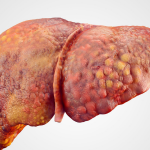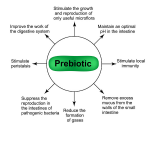Psychiatric Disorders: Targeting the Microbiome
Student Scholarship Honorable Mention
Alexandra Francis, ND, MS, CNS
Marie Winters, ND, FABNO
All disease begins in the gut. ~ (Hippocrates)
“When in doubt, treat the gut” is an excellent naturopathic rule of thumb that naturopathic doctors have relied on for decades. We have always understood that symptoms and chronic diseases often improve when we focus on treating the gut, but only recently there has been exploration into why this is so. We’ve been told that we have more microorganisms in our gut (meaning our whole digestive system, but primarily the small and large intestines) than we have cells comprising our bodies. “The human gut microbiota consists of a complex community exceeding 100 trillion microorganisms whose collective genome – the microbiome – encodes 100 times more genes than the human genome. It is now widely considered that the gut microbiota should be considered an ‘exteriorized’ organ placed within the body, which provides important physiological functions and is indispensable for human life.”1 These microorganisms are responsible for metabolizing dietary nutrients, xenobiotics, and drugs, as well as maintaining the integrity of the gut mucosal barrier, immunomodulation, and protection against pathogens.2
Our knowledge of the functions and roles the gut microbiome plays in our health and physiology has been expanding. The gut microbiome is a relatively new exploration in the field of medicine, and recent research has shed light on promising new clinical applications of focusing treatment efforts on the gut microbiome. Some of the conditions shown to benefit from optimizing the gut microbiome include several digestive disorders, such as irritable bowel syndrome (IBS) and inflammatory bowel disease (IBD), as well as systemic conditions such as diabetes mellitus, obesity, and cardiovascular disease.
Psychiatric Disorders
About half of US adults will experience a mood or mental disorder consistent with the diagnostic criteria in the DSM-IV at some point during their lives.3 The onset of these disorders is usually during childhood or adolescence, which suggests that treatment methods should be directed to the younger population and emphasize prevention.3 Use of conventional drug therapies for psychiatric disorders has been on the rise over the last few decades. Given the increasing rates of mood disorders and drug dependence trends, conventional drug therapy appears to have had relatively low efficacy in psychiatric patients, especially those with depression.4,5 Possibly in response to this, there has been increasing research into the composition of the gut microbiome in individuals with mood disorders. Many people with psychiatric illnesses have been found to have an altered gut microbiome composition and compromised integrity of the gut lining, and these patterns are theorized to be affecting the functioning of the nervous system.6
Ever since the 1950s, the only therapy widely used to treat mood disorders are pharmaceutical agents that target the monoamine neurotransmitters in the central nervous system (CNS) – serotonin, norepinephrine, and dopamine.7 Recent research has established a strong connection between physiological health and mental health, including the extensive therapeutic potential of manipulating the gut microbiome in individuals with mood disorders.
The way that the gut communicates with the brain is likely the underlying factor in this relationship. Extensive research has been conducted on mice that has included manipulating their gut microbiota and observing their consequent behavioral changes (eg, increased or decreased depression and anxiety).8 Findings from this research strongly support the theory that these behavioral/mood changes result from aberrant neurochemical transmission from the gut microbiome.8 When mice are treated with oral neomycin (antibiotic), bacitracin (antibiotic), and primaricin (antifungal), their anxiety is reduced.9 It has also been demonstrated that germ-free mice (mice devoid of gut microorganisms) have higher concentrations of the serotonin precursor, tryptophan, compared to control mice.8 This could be due to the elimination of pathogenic or inflammation-inducing bacterial and/or fungal species in the gut. When in excess, some of these pathogenic enteric microbes can trigger inflammatory processes in the CNS. Acutely depressed patients have been shown to have higher gut levels of Bacteroidetes, Actinobacteria, and Proteobacteria, as well as lower levels of Firmicutes, compared to patients with milder depression.7 Children with autism spectrum disorder (ASD) have been shown to have less gut microbial diversity and lower levels of Prevotella, Coprococcus, and Veillonellaceae compared to controls.9 Spore-forming anaerobic bacteria and microaerophilic bacteria have also been found in gastric and duodenal samples from children with ASD, whereas control children showed no presence of these microbes.9
Probiotics & Prebiotics
The main immunomodulatory actions of probiotics and prebiotics include modulating the immune responses from the gut mucosa, enhancing the integrity of the epithelial barrier in the gut, and priming adaptive responses via antigen-presenting cells.10
Immunomodulation is primarily carried out through regulation of T-cell maturation, which is highly implicated in inflammation and autoimmune disease.10 The 2 dominant genera of gut bacteria that are considered beneficial probiotics are Lactobacilli and Bifidobacteria.11 Research has demonstrated that Lactobacillus and Bifidobacterium species modulate the production and secretion of various cytokines by acting on monocytes, macrophages, epithelial cells, peripheral blood mononuclear cells, and dendritic cells.10 The eradication of “bad” species of gut bacteria and the addition of beneficial probiotic species may provide novel avenues for treatment of mood disorders.“ Live bacteria that have a positive mental health benefit have been defined as psychobiotics.”7
Disorders characterized by a deviation from normal gut bacteria include small intestinal bacterial overgrowth (SIBO), dysbiosis, IBS, and more. It should come as no surprise that there is a high prevalence of psychiatric illness among patients with IBS, including panic disorder, generalized anxiety disorder, social phobia, posttraumatic stress disorder, and major depression.12 Probiotics can competitively inhibit disease- and inflammation-causing pathogenic bacteria by blocking attachment sites on epithelial cells. Lactobacillus plantarum and Lactobacillus rhamnosus upregulate the production of intestinal mucins, which greatly reduces the adherence of Escherichia coli O157:H7 and its damaging effects.13 It has been demonstrated in humans that administering a combination of the probiotics Lactobacillus helveticus and Bifidobacterium longum has an anxiolytic effect and reduces serum cortisol.14 Lactobacillus reuteri is another highly effective probiotic that modulates immune system functioning, reduces stress-induced increases in corticosterone, and reduces anxiety by altering the mRNA expression of GABAA and GABAB receptors in the CNS.14 Bifidobacterium infantis has been found to have antidepressant effects, via suppression of stimulation-induced elevations in proinflammatory cytokines as well as increasing tryptophan levels.14
The Gut-Brain Connection
There have been rapidly coalescing clusters of evidence related to the gut-brain connection, with special focus on potential etiologies of anxiety, depression, behavior, and other mental or emotional disorders. “…[I]llnesses such as major depressive disorder are disproportionately prevalent in patients with gastrointestinal illnesses such as inflammatory bowel disease, which pathologically has been strongly linked to microbiome function.”15
Intestinal hyperpermeability is a very important pathophysiologic mechanism implicated in dysbiosis and mood disorders. The hyperpermeability is characterized by weakened tight junctions between the enterocytes of mainly the small intestine. This creates “gaps” in the epithelial lining of the small intestine that allow for translocation of partially digested food products and bacterial toxins into the bloodstream, often triggering a low-grade immune response through the interaction of T-cells and compromised epithelium. It has been shown that intestinal hyperpermeability often coexists with altered gut microbiome composition and activity.1
Immune system hypersensitivity should also be explored as a possible contributing factor in the gut-brain connection. While the immune system is not usually occupied with reacting to non-harmful antigens, it can start to overreact to a normally harmless antigen; this is referred to as an immune hypersensitivity reaction. There are several types of hypersensitivity reactions, and they all promote inflammation that may affect mood and behavior. It has been found that germ-free mice have an increased stress response, higher cortisol levels, and lower levels of cortical and hippocampal brain-derived neurotropic factor (BDNF) compared to control mice; furthermore, these effects are no longer present when the mice are recolonized with Bifidobacteria species.14 Lactobacillus strains have also been shown to trigger increased levels of 2 key anti-inflammatory/suppressive cytokines – transforming growth factor-beta (TGF-ß) and interleukin-10 (IL-10) via interaction with dendritic cells.10 This produces a tolerogenic state such that immune cells do not hyper-react to non-harmful antigens (ie, they tolerate them), thereby keeping inflammation low.10 TGF-ß has major regulatory activity, induces peripheral antigenic/immune tolerance, and suppresses cells of the innate immune system.16 Because of its broad anti-inflammatory effects, TGF-ß has been considered a possible therapeutic for inflammatory diseases, autoimmune disease, cancer, and Alzheimer’s disease; it might also be considered in the treatment of severe mood disorders.16
Nutritional Impacts on the Gut
The first time nutrition is thought to impact the gut microbiome is shortly after birth. Early life (the weeks and months following birth) serves as a critical window of opportunity for the development of the core microbiome from diet.10 Human breast milk has profound beneficial effects on the gut microbiome and is considered the optimal source of nutrition for newborns. Breast milk contains several components that are essential for a maturing immune system, including colostrum, immunoglobulins, lysozyme, lactoferrin, Lactobacillus acidophilus and L gasseri, Bifidobacterium bifidium and B breve, and human milk oligosaccharides (HMOs).10
Some of the general dietary changes that have occurred in the United States over the past 3 decades include higher caloric intake, higher proportion of calories derived from refined grains/carbohydrates, and increased intake of corn-derived sweeteners (ie, corn syrup).17 These poor dietary patterns are likely a major culprit in the development of psychiatric disorders, mood disorders, and developmental disorders. A significant amount of evidence exists that shows how dietary interventions (especially gluten-free and casein-free diets) that help optimize the gut microbiome and reduce levels of inflammation also effectively improve behavioral and digestive symptoms in autistic children.18 Foods shown to foster gut bacterial imbalances include sugar, eggs, soy, gluten, and dairy.19 These foods trigger some of the most common food sensitivities in individuals with intestinal hyperpermeability (“leaky gut”). Food sensitivities can be the root cause of many common inflammatory manifestations, including mood disorders.
Short-chain fatty acids (SCFAs), such as butyrate, acetate, and propionate, have been shown to positively impact the gut microbiota and exert modulatory effects on the immune system.17 Increased fiber intake can enhance SCFA status, since SCFAs are products of anaerobic microbial fermentation of non-digestible macronutrients (mostly plant polysaccharides and resistant starches).17 SCFAs promote colonic water resabsorption and decrease fecal pH, which both beneficially affect bacterial growth in the colon.9 Levels of SCFAs (butyrate, acetate, propionate), along with levels of different phylogenic microbial strains, can be measured via a comprehensive stool analysis.
Conclusions
Anxiety disorders, depressive disorders, and autism spectrum disorders have been rapidly increasing in prevalence over the past few decades, especially in the United States. Causes of this increase are still largely unknown, but etiologic factors are beginning to be considered at a deeper level. This fact highlights the need for more effective intervention strategies, which can be accomplished through research studies and clinical trials. Most studies of the gut microbiome to date have been conducted on mice, which only minimally translate to human health.
Today, there is a clear need for alternative treatment strategies for several common psychiatric conditions including anxiety and depressive disorders. Pharmaceutical therapy has demonstrated limited efficacy in the general population of psychiatric patients. Many patients with psychiatric illness are prescribed indicated medications and become reliant on them for a significant portion of their lives, despite their often-minimal efficacy and the fact that they are often intended to be used only for a short period of time. As an alternative to pharmaceutical therapy, treatment designed to reduce CNS inflammation and optimize the gut microbiome may be a novel and highly effective form of therapy. Many of the psychiatric and developmental disorders that are increasingly affecting young children are postulated to result from nutrition and diet during infancy and childhood – factors that significantly affect the composition of the gut microbiome.
Strong but complex connections exist between the gut microbiome, the immune system, CNS activity, mood, and behavior. Research is just beginning to reveal how these systems interact with each other. Although clinical applications are not yet well supported, it is likely that the growing interest in the gut microbiome will propel further investigation into more specific medical treatments that optimize the microbiome. Probiotics are already a useful clinical tool in the treatment of a wide variety of health problems, including psychiatric disorders. Diet therapy, functional foods, nutritional supplements, antimicrobial agents, and probiotic therapy are all avenues of treatment that have been shown to be highly effective in healing the gut, including balancing enteric bacteria, improving the integrity of the epithelial lining, and modulating the activity of gastrointestinal immunity. We now know that all of these factors are central to the functioning of the CNS and the pathophysiology of psychiatric disorders.
Nutritional therapy is one of the most powerful tools for altering the gut microbiome. It has been shown that even short-term dietary changes significantly affect (positively or negatively) the populations of microorganisms in the GI tract. In general, a high fiber, plant-based diet, in conjunction with fermented foods containing probiotics, is highly recommended for increasing the concentrations of beneficial gut microbes. The current average American diet is pro-inflammatory by promoting overgrowth of pathogenic microorganisms, both bacterial and fungal. Enhancing patients’ dietary patterns can serve to balance their gut microbiome, decrease inflammation, optimize nutrient absorption and utilization, and modulate their immune system. All of these effects should significantly decrease their symptoms of anxiety and depression, and help to stabilize their mood.
References:
- Leclercq S, Matamoros S, Cani PD, et al. Intestinal permeability, gut-bacterial dysbiosis, and behavioral markers of alcohol-dependence severity. Proc Natl Acad Sci U S A. 2014;111(42):E4485-E4493.
- Jandhyala SM, Talukdar R, Subramanyam C, et al. Role of the normal gut microbiota. World J Gastroenterol. 2015;21(29):8787-8803.
- Kessler RC, Berglund P, Demler O, et al. Lifetime prevalence and age-of-onset distributions of DSM-IV disorders in the national comorbidity survey replication. Arch Gen Psychiatry. 2005;62(6):593-602.
- Whitaker R. Anatomy of an Epidemic: Psychiatric Drugs and the Astonishing Rise of Mental Illness in America. Ethical Hum Psychol Psychiatry. 2005;7(1):23-35. Available at: http://freedom-center.org/pdf/anatomy_of_epidemic_whitaker_psych_drugs.pdf. Accessed December 5, 2017.
- Vietta L, Bambling M, Alford H. The gastrointestinal tract microbiome, probiotics, and mood. Inflammopharmacology. 2014;22(6):333-339.
- Forsythe P, Sudo N, Dinan T, et al. Mood and gut feelings. Brain Behav Immun. 2010;24(1):9-16.
- Dinan TG, Cryan JF. Mood and microbiome: towards clinical translation. Genome Med. 2016;8(1):36.
- Clarke G, Grenham S, Scully P, et al. The microbiome-gut-brain axis during early life regulates the hippocampal serotonergic system in a sex-dependent manner. Mol Psychiatry. 2013;18(6):666-673.
- Zhang YJ, Li S, Gan RY, et al. Impacts of gut bacteria on human health and diseases. Int J Mol Sci. 2015;16(4):7493-7519.
- Hardy H, Harris J, Lyon E, et al. Probiotics, prebiotics and immunomodulation of gut mucosal defences: homeostasis and immunopathology. Nutrients. 2013;5(6):1869-1912.
- Tuohy KM, Probert HM, Smejkal CW, et al. Using probiotics and prebiotics to improve gut health. Drug Discov Today. 2003;8(15):692-700.
- Lydiard RB. Irritable bowel syndrome, anxiety, and depression: what are the links? J Clin Psychiatry. 2001;62 Suppl 8:38-45.
- Sherman PM, Johnson-Henry KC, Yeung HP, et al. Probiotics reduce enterhemorrhagic eschericia coli 157:H7- and enteropathogenic e. coli O127:H6-induced changes in polarized T84 epithelial cell monolayers by reducing bacterial adhesion and cytoskeletal rearrangements. Infect Immun. 2005;73(8):5183-5188.
- Cryan JF, O’Mahony SM. The microbiome-gut-brain axis: from bowel to behavior. Neurogastroenterol Motil. 2011;23(3):187-192.
- Flowers SA, Ellingrod VL. The Microbiome in Mental Health: Potential Contribution of Gut Microbiota in Disease and Pharmacotherapy Management. Pharmacotherapy. 2015;35(10):910-916.
- Sanjabi S, Zenewicz LA, Kamanaka M, Flavell RA. Anti-inflammatory and pro-inflammatory roles of TGF-beta, IL-10, and IL-22 in immunity and autoimmunity. Curr Opin Pharmacol. 2009;9(4):447-453.
- Kau AL, Ahern PP, Griffin NW, et al. Human nutrition, the gut microbiome and the immune system. Nature. 2011;474(7351):327-336.
- Reichelt KL, Knivsberg AM. The possibility and probability of a gut-to-brain connection in autism. Ann Clin Psychiatry. 2009;21(4):205-211.
- Kellman R. The Microbiome Diet: The Scientifically Proven Way to Restore Your Gut Health and Achieve Permanent Weight Loss. Boston, MA: Da Capo Lifelong Books; 2014.
 Alexandra Francis, ND, MS, CNS, was a 4th-year naturopathic medical student at the University of Bridgeport College of Naturopathic Medicine when she wrote this article; she graduated in May 2018. She is also pursuing a master’s degree in Human Nutrition at the University of Bridgeport Nutrition Institute. Alexandra has given several lectures on subjects including naturopathic medicine, nutrition, therapeutic diets, lifestyle, and wellness. Alexandra plans to start consulting on nutrition, diet, and lifestyle, to complement her clients’ medical treatment in Long Island, NY.
Alexandra Francis, ND, MS, CNS, was a 4th-year naturopathic medical student at the University of Bridgeport College of Naturopathic Medicine when she wrote this article; she graduated in May 2018. She is also pursuing a master’s degree in Human Nutrition at the University of Bridgeport Nutrition Institute. Alexandra has given several lectures on subjects including naturopathic medicine, nutrition, therapeutic diets, lifestyle, and wellness. Alexandra plans to start consulting on nutrition, diet, and lifestyle, to complement her clients’ medical treatment in Long Island, NY.
***
 Marie Winters, ND, FABNO, received her ND degree from Bastyr University in 2006. Dr Winters is the former director of the Naturopathic Medicine Department at Cancer Treatment Centers of America in Philadelphia. She is also a Fellow of the American Board of Naturopathic Oncology, sits on the Board of Medical Examiners for the American Board of Naturopathic Oncology, and is currently President of the PA Association of Naturopathic Physicians. She is an adjunct professor at Bridgeport University’s College of Naturopathic Medicine and maintains a private practice in Philadelphia. Dr Winters has spoken at several medical conferences across the country.
Marie Winters, ND, FABNO, received her ND degree from Bastyr University in 2006. Dr Winters is the former director of the Naturopathic Medicine Department at Cancer Treatment Centers of America in Philadelphia. She is also a Fellow of the American Board of Naturopathic Oncology, sits on the Board of Medical Examiners for the American Board of Naturopathic Oncology, and is currently President of the PA Association of Naturopathic Physicians. She is an adjunct professor at Bridgeport University’s College of Naturopathic Medicine and maintains a private practice in Philadelphia. Dr Winters has spoken at several medical conferences across the country.









